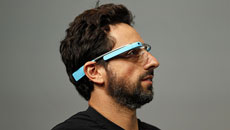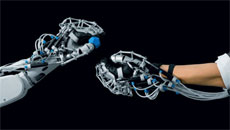So far, electric cables have been used only to transmit electricity. But soon, you will be able to power your mp3 player, smartphone and electric car from cables that can store energy.
In a ground breaking discovery, researchers at University of Central Florida have developed a method to both transmit and store electricity in a single lightweight copper wire.
“Copper wire is the starting point, but as the technology improves special fibres could also be developed with nanostructures to conduct and store energy,” said nanotechnology scientist Jayan Thomas from University of Central Florida.
Thomas and his team grew a layer of nanowhiskers on the outer surface of the copper wire. These whiskers were then treated with a special alloy, which created an electrode.
But two electrodes are needed for the powerful energy storage. So the researchers had to figure out a way to create a second electrode.
They did this by adding a very thin plastic sheet around the whiskers and wrapping it around using a metal sheath (the second electrode) after generating nanowhiskers on it (the second electrode and outer covering).
The layers were then glued together with a special gel.
“Because of the insulation, the nanowhisker layer is insulating. The inner copper wire retains its ability to channel electricity. The layers around the wire independently store powerful energy,” Thomas explained.
In other words, Thomas and his team created a supercapacitor on the outside of the copper wire. Supercapacitors store powerful energy -- sufficient to start a vehicle or heavy-construction equipment.
More immediate applications of this technology could be seen in the design and development of electrical vehicles, space-launch vehicles and portable electronic devices.
With the development of capability to store and conduct energy on the same wire, heavy, space-consuming batteries could become a thing of the past.
"In the case of launch vehicles, that could potentially lighten the load, making launches less costly,” Thomas said.
The work is published in the material science journal Advanced Materials.




